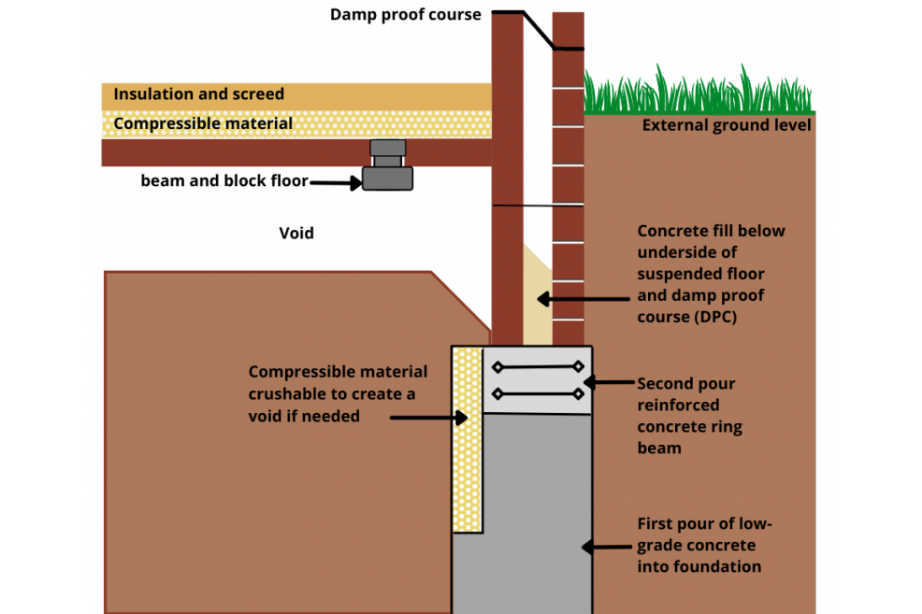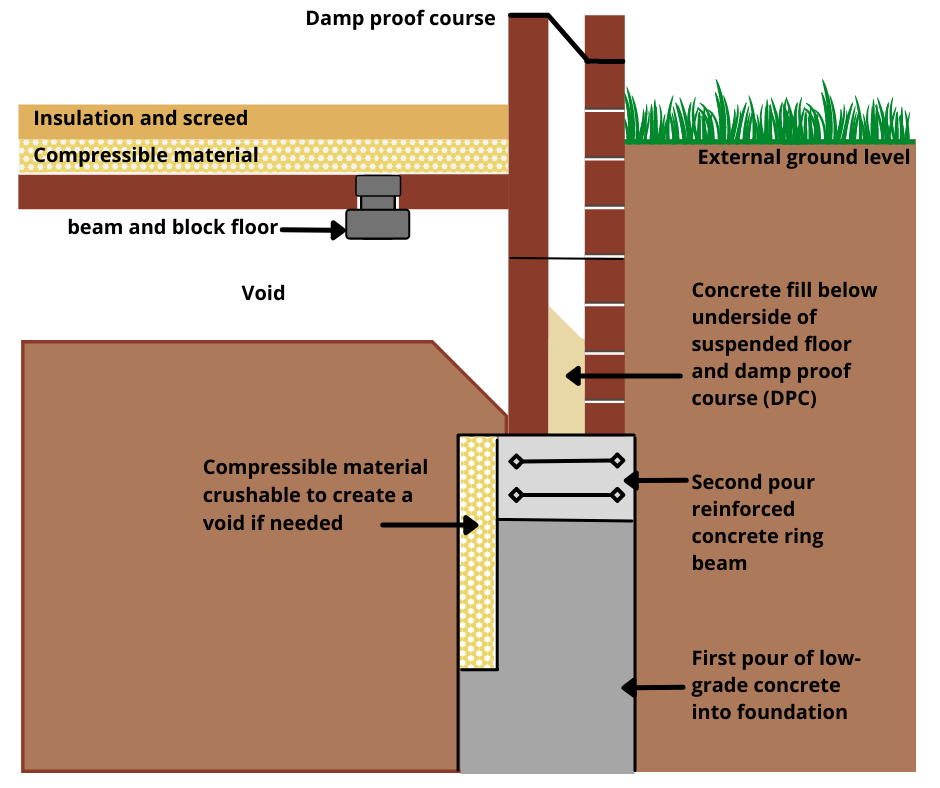A two-stage pour foundation is essentially just that; where there are two different types of concrete poured into the foundations and different stages. This type of foundation solution might be used where we have variable soils with a clay content, which means foundations span between different bearing strata. There may be pockets of gravel, limestone or soft peat throughout the clay content.
The variable ground means we need to reinforce the foundation to be able to carry the loads over these soft spots. However, to successfully place the reinforcement needed in a 2.5m deep trench would not be safe so we would use a two-stage pour option with a reinforced concrete ring beam.
The first stage is to dig down to the required depth and pour in a low-grade cost-efficient concrete up to formation level (300mm below the finished top of concrete level). In the second stage we then add the necessary reinforcement – which might be mesh reinforcement for example. We then pour a stronger foundation concrete onto the reinforcement.
This method means no one is required to enter the trench to fit reinforcement in a 2.5m deep, and potentially very dangerous, trench. It is also more cost-effective as the higher quality concrete is used only on the second pour, the last bit of the foundations.
Diagram shows a two-stage pour – a typical external wall foundation section.
Typically we would then have a suspended beam and block floor which creates a void allowing the ground to heave without compromising the structure.
When assessing what type of foundation is required a site investigation is required to understand what the ground conditions are. Where possible we would opt for a single-stage pour, as the most effective solution if this is not possible as described above then a two-stage pour might be appropriate. If digging deep trenches is not practical or possible then we would recommend a piled option with possibly a concrete raft – which we detail in another blog and case study.
If you have any concerns or questions about foundations or alternative solutions to piling then please give us a call on 01993 225 085 or email mail@swjconsulting.co.uk





